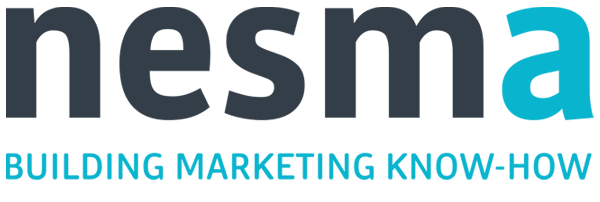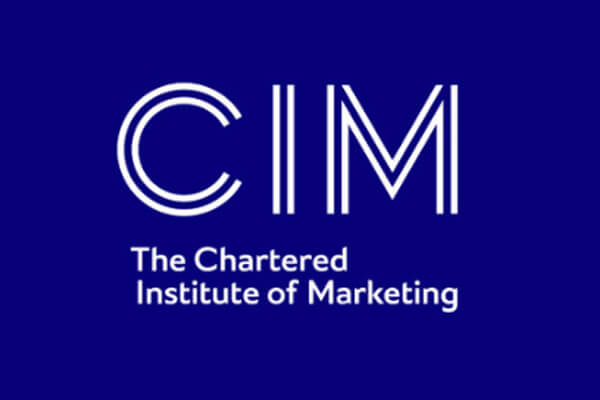Course Overview
The CIM Level 6 Diploma in Sustainable Marketing is designed to offer progression from all CIM Level 4 qualifications and also links with the Level 6 Diploma in Professional Digital Marketing and Level 6 Diploma in Professional Marketing.
Successful completion of the CIM Level 6 Diploma in Sustainable Marketing will establish the knowledge, skills and understanding to be able to perform at a management level and to carry out an essential and successful professional marketing role within the workplace.
To achieve the CIM Level 6 Diploma in Sustainable Marketing, a pass is required in each of the three modules. The qualification has been structured to reflect the need for a flexible and bite-size approach for today’s professional marketer.
To achieve the Diploma in Sustainable Marketing you’ll need to gain a pass in all three mandatory modules, and we have cohorts starting in January / April & September annually.  Each module of the qualification can also be achieved as an individual award.
Each module of the qualification can also be achieved as an individual award.
At Level 6, CIM qualifications are the CIM Level 6 Diploma in Sustainable Marketing, CIM Level 6 Diploma in Professional Marketing and Level 6 Diploma in Professional Digital Marketing. If a module is studied as a standalone module, an individual Award qualification can be achieved.
In developing this course CIM has worked in partnership with the Carbon Literacy Trust.
This course is ideal for those working in a managerial or operational role within an organisation concerned with leading the way business responds to sustainability challenges and are keen to drive and effect real change The organisation may be looking to develop, or already implementing a sustainable response through or using the marketing function as a critical driver.
Some typical job titles include marketing manager, marketing and communications manager, corporate communications manager, product manager and brand manager. Heads of sustainability and other more specific sustainability-related roles could also attend.
Marketing and Digital Strategy
Aims of the module
The modules available in the CIM Diploma in Professional Marketing include:
This module will enable you to take both a traditional and digital strategic approach to marketing planning, integrating digital strategy, models, frameworks and techniques throughout to achieve competitive advantage.
You will be able to recognise the significance of situation analysis and use techniques to assess the external and internal environments that enable effective decision making. You will also be able to apply all stages within the marketing planning process – from the audit, through strategic decision making, to implementation of plans across both traditional and digital channels.
Finally, you will learn how to manage resources and employ monitoring and measurement techniques that enable the achievement of strategic marketing objectives.
Module structure
The module comprises three units of two learning outcomes each. Each learning outcome will be covered by the related assessment criteria and will be assessed by way of assignment. By the end of this module you should be able to:
Unit 1: Situation Analysis
- Understand how to analyse an organisation’s current and future internal and external environments (15%)
- Interpret relevant information and insights to recommend and inform strategic decision making (15%)
Unit 2: Planning
- Develop marketing objectives and strategy to deliver organisational objectives (20%)
- Develop a strategic marketing plan and a supporting marketing mix to deliver marketing objectives (20%)
Unit 3: Implementation and Control
- Define the resources required to deliver the strategic marketing plan (15%)
- Apply the results of monitoring and measurements, and adapt the marketing plan for continuous improvement (15%)
Innovation in Marketing
Aims of the module
This module enables you to take a visionary approach and embed innovation to help your organisation deal with the challenges of a fast-moving marketplace. You will be able to understand the relationship between marketing and innovation and recognise the key factors in building and nurturing innovation within the marketing function. You will also be able to use internal and external marketing in supporting a specific innovation.
Module structure
The module comprises three units of two to three learning outcomes each. Each learning outcome will be covered by the related assessment criteria and will be assessed by way of assignment. By the end of this module you should be able to:
Unit 1:Innovation
- Understand how innovation and disruption are influencing organisational growth (15%)
- Assess the key factors that facilitate innovation in organisations (15%)
Unit 2: Innovative Marketing
- Apply principles of innovation throughout the marketing function (20%)
- Develop a business case for a marketing-related innovation (20%)
Unit 3: Innovation in Action
- Understand the activities required for the implementation of innovative marketing (15%)
- Develop a plan for the communication of innovation (15%)
Sustainability
Aims of the module
This module has been designed to give learners the opportunity to demonstrate the knowledge and understanding of marketing’s role in creating a sustainable environment.
The module enables the marketer to explore key concepts of sustainability to gain a better understanding of the level of change that the organisation can achieve and how marketing facilitates that change. You will consider the role of marketing in engaging with stakeholders (with the natural world established as a key stakeholder) to understand how to reframe core strategies and construct a brand purpose that aligns with relevant sustainability imperatives.
The module will equip you to plan, resource and execute key actions, and communicate how and why your organisation is responding to the evolving sustainability agenda.
Module structure
The module comprises three units of two learning outcomes each. Each learning outcome will be covered by the related assessment criteria and will be assessed by way of assignment. The assessment will require the submission of an assignment based on a given scenario.
The learning outcomes and assessment criteria, along with the indicative content, are detailed in the Sustainable Marketing module content which follows.
|
Sustainability
Creating and co-creating value
Implementing sustainability
|
Assessment Method
To achieve the Diploma in Sustainable Marketing, you’ll need to gain a pass in all the mandatory modules.
All modules are assessed via an assignment submission.
Marketing and Digital Strategy Assessment: Assignment
Innovation in Marketing Assessment: Assignment
Sustainability: Assignment
Entry Requirements
You’ll need to have a minimum of two years of experience working in the industry at an operational level or a relevant Level 4 qualification to study the Diploma in Professional Marketing.
One or more of the following is required to gain entry onto this qualification:
- CIM Level 4 Professional Certificate in Marketing or CIM Level 4 Certificate in Professional Marketing or CIM Level 4 Certificate in Professional Digital Marketing any relevant Level 4 qualification
- Bachelor’s or Master’s degree, with at least one-third of credits coming from marketing content (i.e. 120 credits in Bachelor’s degrees or 60 credits with Master’s degrees)
- professional practice (suggested two years marketing in an operational role) and diagnostic assessment onto Level 6
If English is not your first language, you will also need to provide evidence of achieving one of the following English Language qualifications within the last two years: IELTS Academic Module with an overall score of 6.5 (each component pass mark must be 6.0 or above) or Cambridge Certificate of Advanced English grade B or above. CIM will consider other equivalent alternatives.
Course Dates
Our next virtual cohort will start w/c 11 September 2023, for more info please contact [email protected].

